The life-saving connection between Patrol Officers John D. Cortinas and Jacob Block of SAPD’s Officer Wellness Unit began with a story in the workplace bulletin.
SAN ANTONIO — In 2022, a San Antonio police officer needed a lifeline. An unexpected person answered his call.
It was a stranger from within his own department.
Now, the two share a bond that extends far beyond the badge.
The life-saving connection between SAPD Patrol Officers John D. Cortinas and Jacob Block of SAPD’s Officer Wellness Unit began with a story in the workplace bulletin.

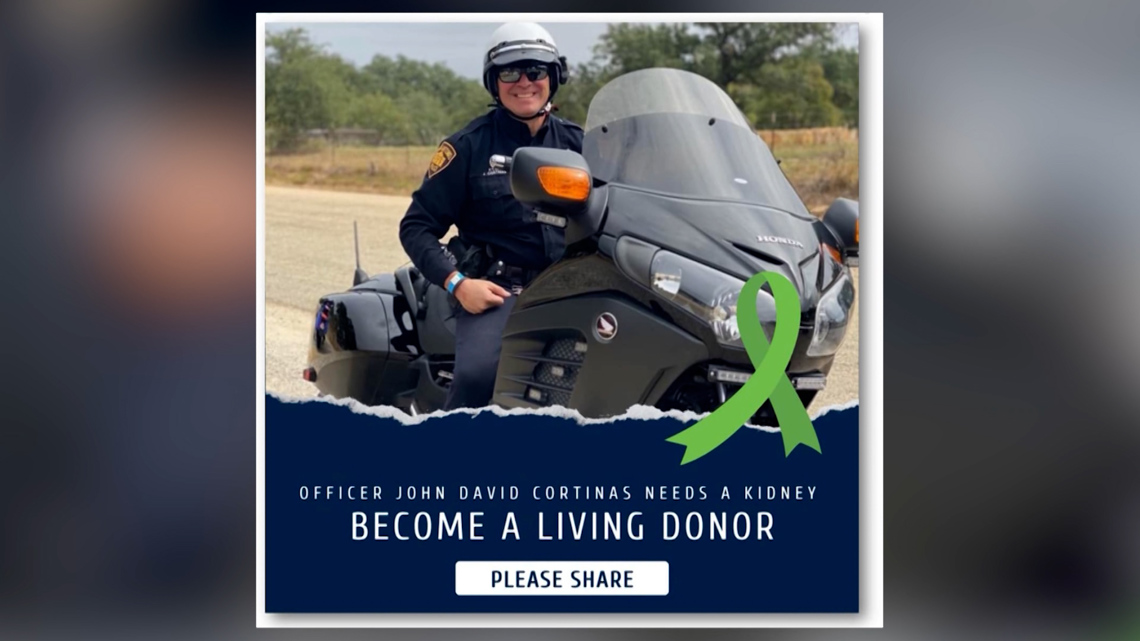
For 20 years, Cortinas was an active biker and police officer. In December 2022, at 51 years old, his life took a fragile turn.
“I was gonna be just quiet about it and say, ‘Yes, OK, that’s my life now,'” said Cortinas.
Scleroderma renal crisis sent him to the hospital with kidney failure. He needed a kidney transplant—ideally from a living donor.
“At first, I just saw the dark side of everything. Waiting on the list for years, going through dialysis,” Cortinas explained. “Some days were OK. Some days were just horrible.”
His story was published in a work bulletin and captured the attention of a fellow officer, Jacob Block.
“Everyone that talked about him said he was a phenomenal human being,” said Block. “He always put his heart out on the line for other people. If I could show up and help somebody like that, that’s exactly the kind of person that I would hope to show up for because they’ve done the same thing for others. They deserve that same kindness.”
Block, 40, learned he wasn’t a match. He couldn’t donate to his brother in blue.
He didn’t give up.
“I called them back said, ‘Hey, is there some way that I can trade [my kidney] so that he can get one?” said Block. “They mentioned that there’s swaps that can happen, but then there’s also chain donations… I’d be more than willing to donate to somebody else if it meant he got one.”
Through University Health’s Champion for Life program, six strangers — including the two officers — formed a living donor chain. According to the National Kidney Registry, a kidney donation chain maximizes the number of patients who get a living donor kidney while ensuring the recipients receive the best possible match.
Dr. Elizabeth Thomas, a transplant surgeon at University Health, says kidney donation chains are happening more often.
“Now we are doing them several times a year, almost once a month,” Thomas explained. “If we have a better match that goes beyond blood type, that kidney will work better and last longer.”

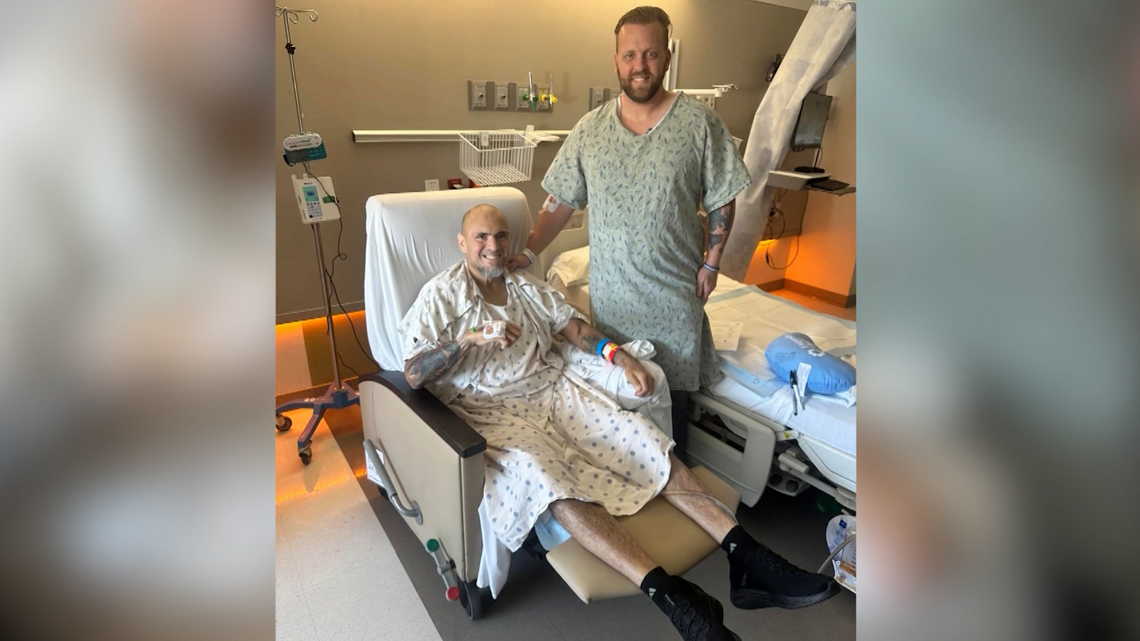
Dr. Thomas, who was instrumental in creating the Champion for Life program, said many patients in need of a transplant don’t know where to start. Through the program, patients will have an advocate who will help identify potential donors by sharing their story and educating others about living donation.
“If you have a living donor, it pulls you off of that list. That list that everyone has to wait on to get that organ,” said Thomas. “Dialysis is no way to live. People are really just surviving. We know someone’s life expectancy on dialysis is really quite short, as short as five years or less. That’s more dramatic than some types of cancers or other diseases.”
“We always say every donor saves at least two lives,” she added. “With these chains, whoever was involved, just double that.”
The six people that were part of the officers’ donor chain underwent their surgeries the same day: March 6, 2024.
On Friday, at a special ceremony hosted by University Health, all six donors and recipients met for the first time.
“I was the stubborn one. I didn’t want anybody to know about my illness or go out of their way to help me out,” said Cortinas. “If it hadn’t been for a living donor, I probably would have been on the [transplant] list closer to seven to eight years.”

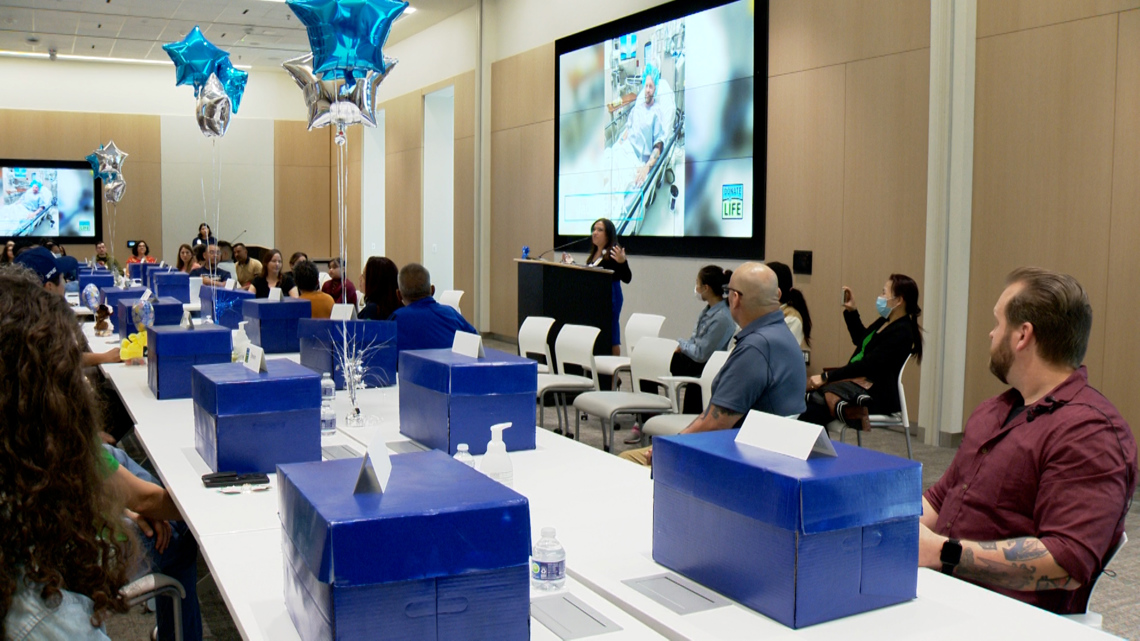
Each member of the donor chain sat at a long table. A blue box sat in front of each of them, and when the box opened, it revealed their partner’s name on a kidney-shaped piece of paper taped to a balloon.
Officer Block’s kidney was given to Maria Barrientos, who fought through tears explaining how her quality of life dramatically improved thanks to his act of kindness. Her pain she once experienced during dialysis has almost completely diminished thanks to her new kidney.

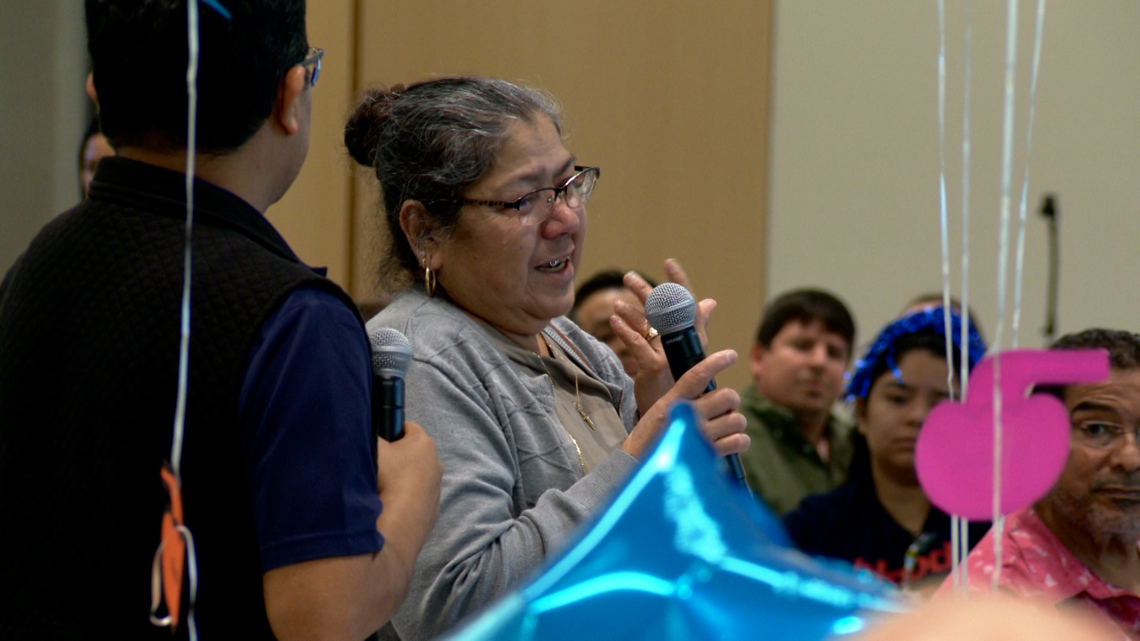
Officer Cortinas met his kidney donor, too. It was 24-year-old Luke McKay, a medical student. McKay is as an “altruistic donor,” which means he had no relation or connection with a recipient.
He donated to simply give the gift of life.
“It just felt like, if you can, you should,” McKay explained during Friday’s ceremony. “It just kind of clicked for me that there’s no reason I couldn’t help make that possible for someone.”
A first-year medical student in 2024, McKay said he was inspired after a lesson from surgeons who explained the technical aspects of transplants.
“You can’t even imagine, bro,” Cortinas told McKay after they embraced in a hug. “You don’t know the new life you’ve given me.”

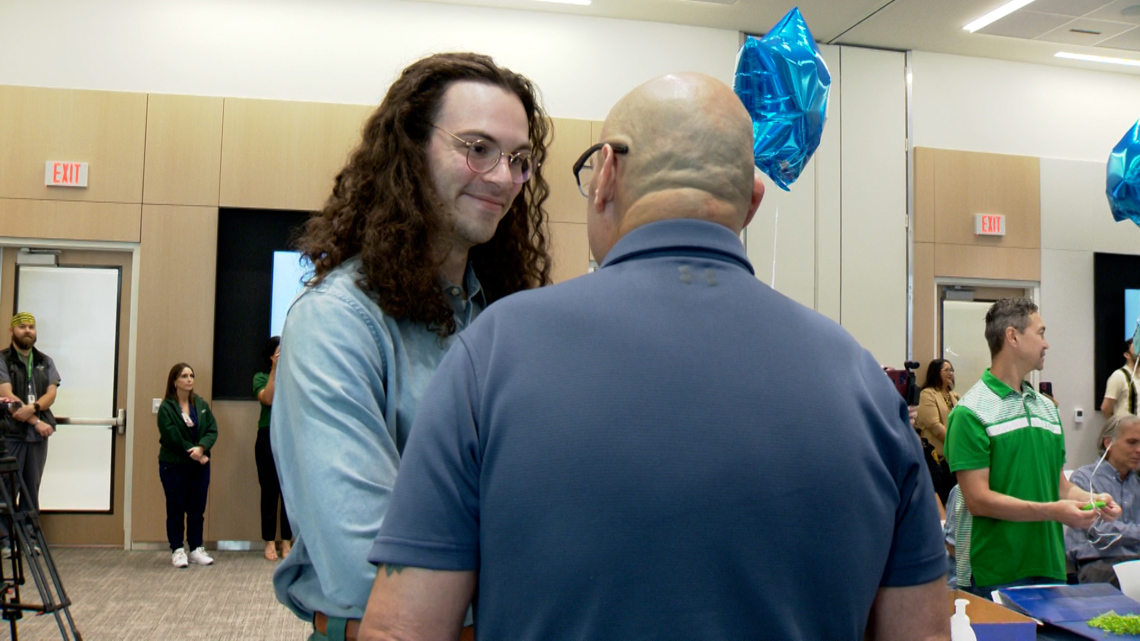
Every day in the U.S., 17 people die waiting for a kidney transplant due to the shortage of available organs, according to the National Kidney Foundation. Last year, 36% of living donor kidney transplants at University Health were part of a kidney exchange or living donor chain.
“The one kidney you have left over will grow to almost double its original size to learn to make up for the second kidney that you had,” said Officer Block, whose wife is also an organ donor. “For anybody who wonders whether it’s going to change your life dramatically, it won’t. Not really. You’ll just get an opportunity to help somebody… I promise you, if I can, anybody else out there can.”
After a year with his new kidney, Cortinas wonders if new organs bring more than just new life. Perhaps changed perspectives are passed on, too.
“There’s things I’ve heard about, emotions that transfer over with body organs. I kind of believe that to be true because there’s things I’ve experienced within the past year that I’ve never experienced in my life,” he told us. “I never cried at those adopt-a-pet-type commercials. I never cried at Saint Jude commercials. It will get me crying and I have no idea why.”

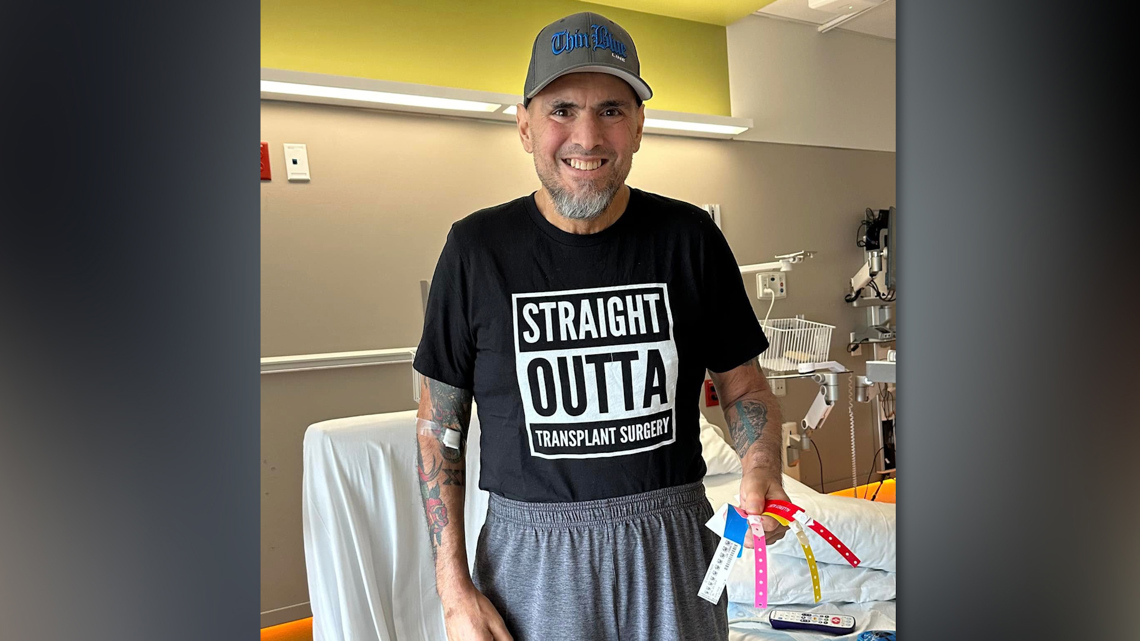
Cortinas says he also started to pack a bag of necessities when he goes to dances. It’s a new habit he picked up since his kidney transplant.
Both officers have returned to work at the San Antonio Police Department. Cortinas is on light duty, but he rejoices in his ability to drive around once again.
“So it’s a totally different life, gave my life back to me,” he said.
If you’d like to give the gift of life as a living donor, click here to learn more. You can also learn more about University Health’s Champion of Life program by visiting their website.
